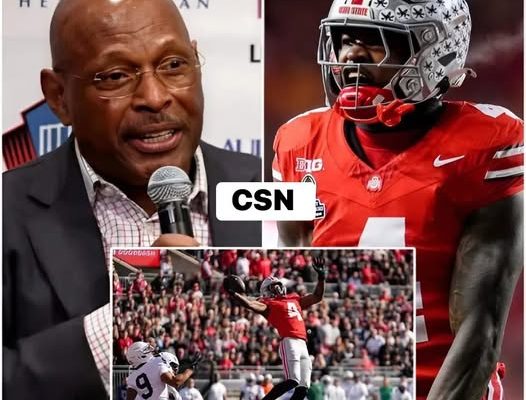Clemson head coach Dabo Swinney has never been one to shy away from speaking his mind, and following his team’s recent struggles, he delivered a candid and fiery response to the growing chorus of critics questioning the state of his program. The 3–4 start to the season, while disappointing by Clemson standards, has not shaken Swinney’s belief in the foundation he has built over the past 14 years. Instead, it has prompted a blunt assessment of the situation, a refusal to bow to external pressure, and a rallying cry for his team to return to the principles that have defined Clemson football for more than a decade.
In an era where college football coaches are scrutinized relentlessly, often measured not by the totality of their accomplishments but by their most recent missteps, Swinney’s statement comes as a reminder that context matters. Over the past 14 seasons, he has transformed Clemson from a program with potential into one of the national powerhouses of the sport. Under his guidance, the Tigers have won multiple ACC titles, captured national championships, and consistently produced NFL-caliber talent. The culture of excellence Swinney has instilled in Clemson is not the product of a single season’s win-loss record, and he made it clear that he refuses to let recent results diminish that legacy.
Speaking to the media after a tough loss, Swinney’s tone was both defensive and reflective. “I’m pissed,” he admitted, his voice tinged with frustration but also with the determination of a man who knows what is at stake. “I’ve strayed from my instincts, and I feel that. I feel it in how we’re playing, in how we’re preparing. But I’m not straying from the work, from the team, or from the foundation we’ve built here. That foundation isn’t built overnight, and it’s not going to crumble because of a few losses.”
Swinney’s acknowledgment of straying from his instincts is particularly significant. For years, he has been praised for his ability to read both games and players, for trusting his gut in recruiting decisions, game planning, and leadership moments. He has built a reputation as a coach who balances emotional intelligence with strategic insight, creating a culture where players are empowered but also held to high standards. By admitting he has deviated from that instinctual approach, Swinney is signaling accountability, a trait that is rare in the high-pressure world of college football coaching.
The Tigers’ 3–4 record is not reflective of Swinney’s entire tenure, yet it has fueled criticism. Social media and sports talk platforms have buzzed with discussions about whether Clemson is still the powerhouse it once was, whether Swinney has lost his edge, or whether the program needs a change in direction. Swinney’s response is clear: he will not allow transient opinion to undermine years of sustained success. “I’m not here to satisfy the loudest voices,” he said. “I’m here to do what’s right for this team, for these young men, and for this program. That’s what leadership is about.”
At the heart of Swinney’s philosophy is the emphasis on trust and resilience. Clemson players and staff are well aware that Swinney’s approach goes beyond X’s and O’s. It is about relationships, about building character, about creating a sense of family and shared purpose. This intangible aspect of Clemson football has been key to the program’s consistent success, even in seasons that have been less than dominant. By highlighting this aspect of his leadership in his comments, Swinney is reminding both critics and supporters that coaching is as much about culture as it is about tactics.
It’s also notable that Swinney did not shy away from owning the challenges his team is facing. He acknowledged mistakes, both his own and those of the squad, without resorting to blame-shifting. “We’ve made errors. We’ve made adjustments that didn’t work. But the answer isn’t panic; the answer is focus, execution, and going back to what we know works,” he said. This kind of candid self-assessment reflects a level of humility and strategic awareness that separates elite coaches from those who are reactive or defensive under pressure.
The 3–4 record represents a departure from the high standards Clemson fans have come to expect, but Swinney’s message is one of long-term perspective. In college football, a program’s success is measured over cycles, not just weeks or months. Recruiting, player development, and culture are processes that unfold over years, and Clemson’s sustained prominence under Swinney is a testament to that methodology. By contextualizing recent struggles within the broader framework of the program, Swinney reinforces the idea that temporary setbacks do not define legacy.
Analysts and commentators have speculated about whether Clemson’s current struggles are a result of player performance, coaching decisions, or the natural ebb and flow of competitive balance. Swinney’s remarks suggest that he sees elements of all these factors at play but remains committed to addressing them methodically. “We’re going to get back to doing what we do best,” he asserted. “We’re going to get back to fundamentals, to discipline, to preparation, and to playing with the heart and energy that has always defined Clemson football. I don’t need to convince anyone of that. We’ll show it on the field.”
Swinney’s track record provides strong evidence that he is capable of leading such a turnaround. Over the years, he has demonstrated an ability to adapt, to learn from setbacks, and to motivate players at all levels. His teams have often faced adversity — tough opponents, key injuries, and high expectations — and yet have consistently bounced back. The core principles of Clemson football, as Swinney articulates them, remain intact: hard work, accountability, trust, and a relentless commitment to improvement.
Furthermore, Swinney’s loyalty to his players and staff is a central element of his leadership style. By standing firmly behind the individuals he has chosen to surround himself with, Swinney fosters an environment of mutual respect and stability. This approach creates a foundation where players feel secure enough to take risks, make mistakes, and ultimately grow both on and off the field. In times of criticism, such loyalty becomes even more critical, as it ensures that the program’s focus remains internal rather than being derailed by external noise.
The emotional intensity in Swinney’s recent comments also reflects his deep investment in the program. He is not merely a manager of athletes or a figurehead of a successful brand; he is a passionate steward of a legacy. Clemson’s national championships, ACC dominance, and NFL-ready talent pipeline did not arise from convenience or luck. They are the product of intentional, sustained effort and vision. Swinney’s declaration that he has “strayed from his instincts” and his determination to correct course signal a recommitment to those principles — a reminder that leadership is an evolving process that requires constant reflection and adjustment.
Critics may continue to voice their concerns, but Swinney’s history suggests that he is not easily swayed by public opinion. His focus has always been on the team, the players, and the long-term trajectory of the program. By framing recent challenges as opportunities for growth rather than signals of failure, Swinney is instilling resilience within his squad and reinforcing the notion that adversity is temporary if approached with the right mindset. This perspective is likely to resonate with his players, who have experienced firsthand the highs and lows of competing at the national level under his guidance.
The broader Clemson community — fans, alumni, and supporters — can also take reassurance from Swinney’s words. While disappointment is natural when a team does not meet expectations, the values that have defined Clemson football remain unchanged. Swinney’s unapologetic defense of his program’s legacy and his commitment to correcting the current course reflect a leadership style that prioritizes substance over perception, effort over optics, and principles over panic.
As the season progresses, the Tigers face the challenge of translating Swinney’s words into tangible results on the field. Practices, game planning, and execution will all be critical in reversing the early-season setbacks. Swinney’s acknowledgment of straying from his instincts is, in many ways, an admission that returning to fundamentals and trusting the established approach will be essential. The next phase of the season will test not only the team’s skill but also its cohesion, resilience, and belief in the program’s long-term vision.
Ultimately, Dabo Swinney’s response to criticism serves as a reminder that leadership in college football extends far beyond win-loss records. It encompasses culture, development, accountability, and the ability to inspire and motivate under pressure. Swinney’s career at Clemson has exemplified these traits, and his recent comments reinforce that he remains committed to them, even when faced with adversity. His willingness to reflect on his own instincts, take responsibility, and articulate a clear vision for moving forward underscores the type of coach and leader he has been for 14 years and continues to be today.
Clemson’s 3–4 start may have sparked debate and speculation, but it has also highlighted the enduring significance of Swinney’s leadership. By embracing accountability, defending his program’s legacy, and reaffirming the principles that have guided Clemson to national prominence, Swinney is setting the stage for a potential turnaround. The path ahead will not be easy, but if history is any indicator, Clemson under Dabo Swinney is capable of overcoming adversity, regaining momentum, and reestablishing itself as one of college football’s elite programs.
As Swinney himself put it, the focus is not on outside opinions but on the work, the preparation, and the relationships that define the Clemson program. In doing so, he reminds fans and critics alike that legacy is built over time and that short-term setbacks do not erase years of achievement. The next chapter in Clemson football will be written not by the voices of critics, but by the collective effort, resilience, and dedication of the players and coaches who embody the values Swinney has championed since taking the helm. His message is clear: while he may be “pissed” and self-aware of moments when he strayed, his commitment to Clemson and its continued excellence remains unwavering, setting a standard for perseverance, leadership, and pride that transcends the scoreboard.



